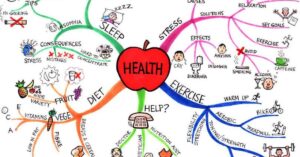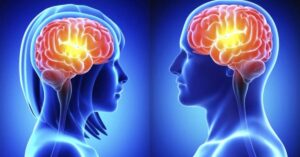Pregnancy is an exciting journey, but it can also be full of questions. One of the first things you might wonder is, “When do the symptoms start?” Every woman’s body is different, and the timing of pregnancy symptoms can vary. Some women notice changes within a week or two of conception, while others may take a bit longer. The most common early signs include missed periods, fatigue, nausea, and tender breasts. These changes are your body’s way of preparing for the baby.
Knowing what to expect and when can help you feel more at ease during this time. Spotting these signs early can also help you confirm your pregnancy sooner. So, whether you’re already noticing some changes or are waiting to see them, understanding the timeline of early pregnancy symptoms is key.
What is pregnancy?
Pregnancy is a process in which changes appear in the female whole body, including the reproductive system.
Pregnancy is the process where a baby grows inside a woman’s body. It starts when a sperm fertilizes an egg, creating a tiny new life. This happens in the woman’s uterus, where the baby will develop over nine months. Pregnancy is divided into three stages, called trimesters. Each stage brings different changes to the mother and the growing baby.
For many, pregnancy is an exciting and emotional time. It’s a journey filled with physical changes, like a growing belly and hormonal shifts. These changes prepare the body to support the baby until birth. While every pregnancy is unique, understanding what happens can make the experience less overwhelming.
What Are Trimesters of Pregnancy?

Pregnancy is divided into three stages called trimesters. Each trimester lasts about three months and marks different phases of the baby’s development. The first trimester includes weeks 1 to 12, when the baby’s major organs begin forming. This is also when early symptoms like nausea and fatigue are most common.
The second trimester covers weeks 13 to 26. Many women feel more energetic during this phase as symptoms ease. The baby starts to grow rapidly, and you may feel the first movements. The third trimester, from weeks 27 to 40, is the final stage. The baby gains weight and gets ready for birth, while you may feel increased discomfort as the due date approaches.
Importance of Pregnancy Symptoms
Pregnancy symptoms are changes your body goes through when you’re expecting. These signs can show up as early as the first few weeks after conception. Common symptoms include nausea, tiredness, a missed period, and breast tenderness. They happen because your body is preparing to support a growing baby. Hormonal changes play a big role in causing these symptoms.
Each woman’s experience with pregnancy symptoms is unique. Some feel symptoms early and strongly, while others notice only mild changes. The timing and intensity can also vary with each pregnancy. Understanding these symptoms can help you recognize early pregnancy and manage the changes more comfortably.
When Do Pregnancy Symptoms Start?
Pregnancy symptoms can start as early as one to two weeks after conception. This is when the fertilized egg attaches to the uterus. Some women notice signs right away, like mild cramping or spotting. Others may not feel any changes until a missed period or even later. Every woman’s body is different, so the timing can vary.
Most early symptoms, like nausea, fatigue, and tender breasts, begin within the first month. Hormonal changes are the main cause of these signs. If you think you might be pregnant, paying attention to these early symptoms can help you know when to take a pregnancy test.
What Are Pregnancy Symptoms?
Pregnancy symptoms are changes in your body that signal you might be expecting. These signs can appear within the first few weeks after conception.
Common Early Signs:
- Fatigue or feeling unusually tired
- Nausea, often called morning sickness
- Missed or late period
- Tender or swollen breasts
- Frequent urination
- Mood swings
- Food cravings or aversions
- Light spotting or cramping
Most Common Early Signs
The most common early pregnancy signs often appear within the first few weeks. The earliest and most obvious sign is usually a missed period, but other symptoms can follow quickly.
- Missed period: Often the first and most noticeable sign.
- Nausea and morning sickness: Usually start around the 6th week of pregnancy.
- Breast tenderness: Can occur as early as one to two weeks after conception.
- Fatigue: Feeling unusually tired is common during the first trimester.
Uncommon Early Symptoms
Some early pregnancy symptoms are more subtle and can be easily overlooked. Spotting or light bleeding can occur when the fertilized egg attaches to the uterus. This is often mistaken for a light period but usually doesn’t last long. Mild cramping can also happen as your body adjusts to the pregnancy.
Other early signs include mood swings and food aversions. Hormonal changes can affect your emotions, leading to sudden mood shifts. You may also develop strong cravings for certain foods or find that some foods suddenly disgust you. These symptoms are less obvious but still common during the early weeks of pregnancy.
When to Take a Pregnancy Test

Taking a pregnancy test at the right time is important for accurate results. Most tests work best a few days after a missed period. This is because your body needs time to produce enough pregnancy hormones (hCG) to be detected. Testing too early might give a false negative result.
Certain signs can indicate it’s time to take a test. If you’ve missed your period, feel unusually tired, or have symptoms like nausea or tender breasts, it’s a good idea to check. Paying attention to these signs can help you confirm pregnancy early and take the next steps.
Home Pregnancy Tests
Home pregnancy tests are a simple way to confirm pregnancy. They work by detecting the hormone hCG in your urine, which is only present during pregnancy. These tests are easy to use and can give results within minutes. Most tests are accurate when taken a few days after a missed period.
For the best results, take the test in the morning when hCG levels are highest. Follow the instructions carefully for accurate readings. If the result is unclear or negative but symptoms persist, consider retesting or consulting a doctor for confirmation.
Curious about Your Baby’s Gender?

There are a few ways to determine if you’re having a boy or girl during pregnancy. The most common method is an ultrasound, usually done between 18 and 22 weeks. This can show the baby’s genitals and give you a clear answer. However, not all ultrasounds can reveal the gender, depending on the baby’s position.
Another option is genetic testing, like amniocentesis or non-invasive prenatal testing (NIPT), which can accurately determine the gender as early as 10 weeks. Keep in mind that some of these tests are done for health reasons, not just gender identification. Gender prediction methods, such as the Chinese gender chart or old wives’ tales, are fun but not scientifically reliable.
Understanding Early Pregnancy Symptoms
Recognizing early symptoms can help you confirm pregnancy sooner. Each woman experiences pregnancy differently, and symptoms vary.
Pay attention to your body and note any unusual changes. Early care and medical advice are essential for a healthy pregnancy.
Tips for Managing Early Pregnancy Symptoms
Managing early pregnancy symptoms doesn’t have to be overwhelming. Simple steps like staying hydrated and seeking medical advice can make a big difference.
| Tips for Managing Early Symptoms | Information |
| Stay Hydrated | Drink plenty of water to prevent fatigue and dehydration. |
| Get Rest | Take naps and prioritize sleep to support your body. |
| Consult a doctor | Seek professional advice if symptoms feel unusual or severe. |
| Eat Balanced Meals | Include healthy foods to combat nausea and boost energy. |
| Manage Stress | Practice relaxation techniques like deep breathing or meditation. |
Common and Uncommon Early Pregnancy Symptoms: A Complete Guide
1. Period

A missed period is one of the earliest and most reliable signs of pregnancy. It happens because your body stops ovulating to support the developing baby. If your period is late and you’re sexually active, it’s a good idea to take a pregnancy test.
However, not all missed periods mean pregnancy. Stress, illness, or hormonal changes can also cause delays. If unsure, tracking your cycle can help identify patterns and confirm pregnancy sooner.
2. Nausea and Morning Sickness
Morning sickness is a common pregnancy symptom that often starts around week six. Despite the name, nausea can occur at any time of the day.
Hormonal changes, especially rising hCG levels, trigger this symptom. Eating small, frequent meals and staying hydrated can help reduce nausea.
3. Breast Tenderness and Changes
Breast tenderness or swelling is an early sign of pregnancy. Hormones like estrogen and progesterone cause the breasts to prepare for milk production.
You may also notice darker areolas or visible veins. Wearing a supportive bra can help ease discomfort during this time.
4. Frequent Urination
Frequent trips to the bathroom can start early in pregnancy. This happens because your body produces more blood, increasing kidney activity.
As the uterus grows, it presses on the bladder, making you feel the urge to go more often. Staying hydrated is still important, even with increased urination.
5. Fatigue
Feeling unusually tired is common in early pregnancy. Your body works hard to support the growing baby, which can drain your energy.
Getting enough rest and eating a balanced diet can help manage fatigue. It’s normal, but listen to your body and rest when needed.
6. Spotting or Light Bleeding
Spotting or light bleeding can occur when the fertilized egg implants in the uterus. This is called implantation bleeding and is usually lighter than a period.
If bleeding is heavy or accompanied by pain, it’s important to consult a doctor. Not all spotting is pregnancy-related, so monitoring is key.
7. Headaches and Dizziness
Hormonal changes can lead to headaches during pregnancy. Increased blood flow and dehydration can also contribute to this symptom.
Dizziness may happen due to lower blood pressure or changes in circulation. Resting and staying hydrated can help ease these symptoms.
8. Bloating
Bloating is another early sign of pregnancy. Hormonal shifts can slow down digestion, causing your stomach to feel tight or swollen.
Eating smaller meals and avoiding gassy foods can reduce discomfort. This symptom often improves as pregnancy progresses.
9. Cramping
Mild cramping is common in early pregnancy as your uterus begins to expand. It may feel similar to period cramps but is usually less intense.
If cramping is severe or accompanied by heavy bleeding, seek medical advice. Gentle stretching can sometimes ease mild cramps.
10. Food Aversions and Cravings

Many women develop strong cravings or aversions to certain foods during pregnancy. Hormonal changes can heighten taste and smell sensitivity.
Listening to your cravings while maintaining a balanced diet is important. Avoid unhealthy foods that might not support your nutritional needs.
11. Heightened Sense of Smell
A more acute sense of smell is a common pregnancy symptom. You might notice certain scents becoming more intense or unpleasant.
This change is linked to increased hormones and can trigger nausea. Avoiding strong smells and freshening your surroundings can help.
12. Backache
Lower back pain often begins in early pregnancy as your body adjusts. Hormones relax ligaments, and posture changes as the uterus grows.
Practicing good posture and doing gentle stretches can relieve discomfort. Using supportive shoes and avoiding heavy lifting is also helpful.
13. Vaginal Discharge
An increase in vaginal discharge is normal during pregnancy. This is your body’s way of preventing infections and keeping the area clean.
Healthy discharge is usually clear or white and odorless. If it changes in color or smell, consult a doctor to rule out infection.
14. Constipation
Hormonal changes during pregnancy can slow digestion, leading to constipation. The growing uterus may also press on the intestines, making it harder to pass stools.
Eating fiber-rich foods, staying hydrated, and being active can help. Avoid over-the-counter laxatives without consulting your doctor.
15. Mood Swings
Fluctuating hormones can cause emotional highs and lows during pregnancy. You might feel happy one moment and overwhelmed the next.
Talking to loved ones or joining a support group can help manage emotions. Rest and relaxation techniques can also improve your mood.
16. Shortness of Breath
You may feel short of breath even during light activities. This happens because your body needs more oxygen to support the growing baby.
Taking breaks and avoiding overexertion can help manage this symptom. It usually improves as the body adjusts to the increased demand.
17. Heartburn
Heartburn is common during pregnancy due to hormonal changes that relax the esophagus muscles. This allows stomach acid to move upward, causing discomfort.
Eating smaller meals and avoiding spicy or greasy foods can reduce heartburn. Staying upright after meals can also help.
18. Acne
Hormonal changes can lead to increased oil production, causing acne in some women. This is similar to hormonal acne experienced during periods.
Using gentle, pregnancy-safe skincare products can help manage breakouts. Avoid harsh treatments without consulting a doctor.
19. Only Pregnancy Tests Confirm Pregnancy
While symptoms suggest pregnancy, only a test can confirm it. Home pregnancy tests detect hCG levels in your urine and are easy to use.
For more accuracy, take a test after a missed period. If the result is unclear, consult your doctor for a blood test or ultrasound.
20. Common Pregnancy-Related Diseases and Their Treatments

During pregnancy, women may experience certain health conditions due to hormonal changes. These conditions can include gestational diabetes, high blood pressure, and preeclampsia. While they can be concerning, many are manageable with proper care.
Treatment often involves regular monitoring and lifestyle changes. For example, managing gestational diabetes requires a healthy diet and blood sugar control. Medications may be prescribed for conditions like high blood pressure. Always consult with a doctor to ensure both mother and baby remain healthy.
Final Thoughts
Understanding when pregnancy symptoms start can help you recognize early signs and confirm pregnancy sooner. Every woman’s experience is unique, but common signs like fatigue, nausea, and missed periods often appear within the first few weeks.
If you notice any of these symptoms, take a pregnancy test to be sure. Early detection is key to taking the right steps for a healthy pregnancy. Stay mindful of your body, and don’t hesitate to seek medical advice if needed.
FAQ’s
When do pregnancy symptoms first appear?
Pregnancy symptoms can begin as early as 1-2 weeks after conception.
What is the earliest sign of pregnancy?
A missed period is often the first noticeable sign of pregnancy.
Can pregnancy symptoms start before a missed period?
Yes, some women experience symptoms like fatigue or nausea before a missed period.
How soon can you feel morning sickness?
Morning sickness typically starts around the 6th week of pregnancy.
Is fatigue a sign of pregnancy?
Yes, feeling unusually tired is a common early pregnancy symptom.
Guest Blogger and Content Writer











It’s awesome article.